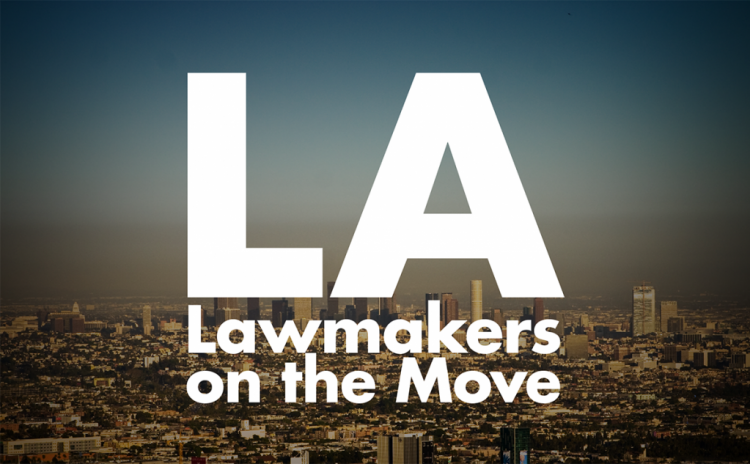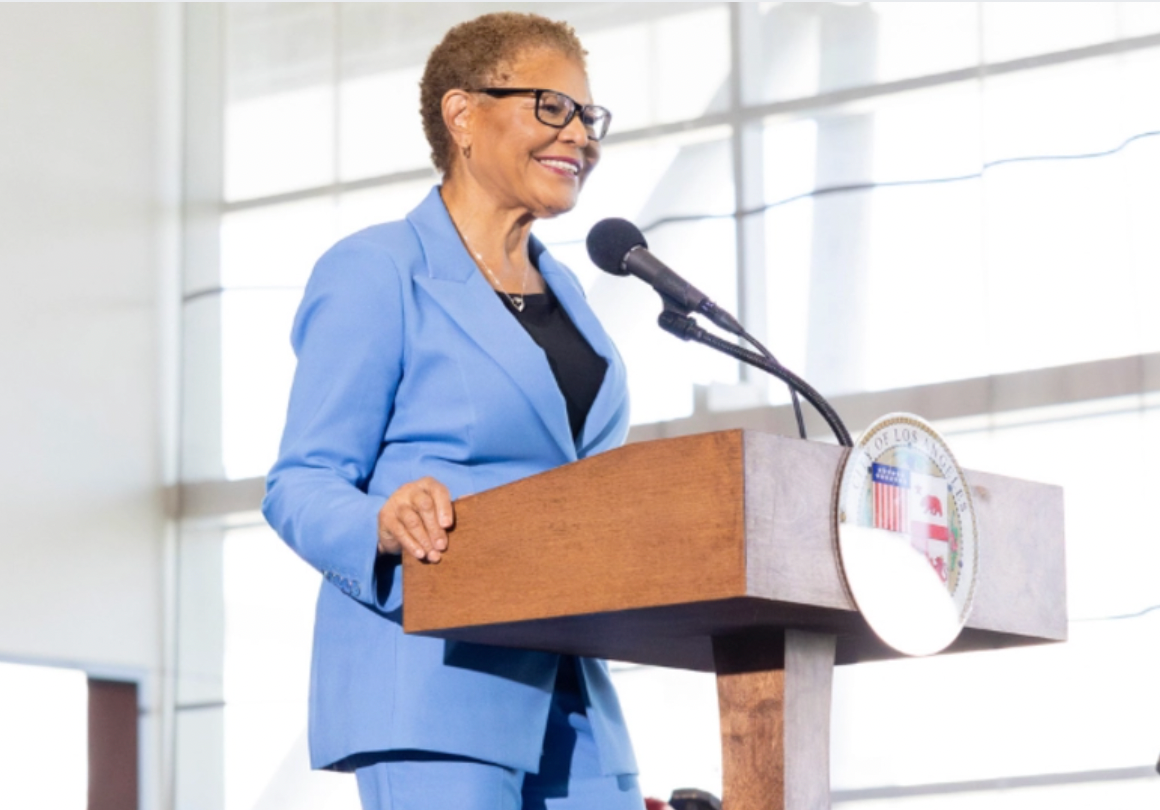Barragán, Padilla Introduce Mental Health for Latinos Act


U.S. Rep. Nanette Barragán (D-San Pedro, Wilmington, Carson, Compton) and U.S. Sen. Alex Padilla (D-Calif.), along with a number of federal lawmakers across the country last week introduced the Mental Health for Latinos Act, legislation to improve mental health outcomes among Latino and Hispanic communities.
Barriers to mental health care within Latino communities cause far too many individuals to suffer in silence. Only 47.4 percent of Hispanic adults ages 18 or older with any mental illness received services in 2023. Between 2010 and 2020, the suicide rate among male Hispanic adults (ages 20 to 64) increased by 35.7 percent, and the rate among women specifically increased by 40.6 percent. Even those who can access services rarely receive the effective, culturally competent care they need.
“This legislation is a first step to breaking down the unique barriers that prevent our Latino communities from receiving the help they need. Mental health is a challenge that many Americans bear silently — but they shouldn’t have to,” said Barragán. “Ensuring that our communities in need receive specialized resources and outreach will help break down cultural stigmas and language barriers that prevent Americans from accessing mental health care that is essential to their overall health and well-being.”
“No one should suffer in silence,” said Padilla. “We need to break down the barriers that keep Latinos from getting the mental health care they need, when stigma and language access can make it even harder to ask for help. The Mental Health for Latinos Act would improve mental health outcomes by reducing stigma in the Latino community and encouraging people to reach out for help. As we tackle the rise in mental health challenges, it’s critical that we acknowledge the distinct needs of our diverse communities and develop solutions that meet people where they are.”
Specifically, the bill would require the Substance Abuse and Mental Health Services Administration (SAMHSA) to develop and implement an outreach and education strategy to promote behavioral and mental health among the Latino and Hispanic populations that:
- Meets diverse cultural and language needs and is developmentally and age-appropriate, Increases awareness of symptoms of mental illnesses.
- Provides information on evidence-based, culturally and linguistically appropriate adapted interventions and treatments.
- Ensures full participation of community members, and uses a comprehensive public health approach to promoting behavioral health by focusing on the intersection between behavioral and physical health.
- Require SAMHSA to report annually to Congress on the extent to which the strategy improved behavioral and mental health outcomes among these populations.
Kamlager-Dove reintroduces End Solitary Confinement Act

U.S. Rep. Sydney Kamlager-Dove (D–Culver City, View Park-Windsor Hills, parts of South LA) and U.S. Sen. Edward J. Markey (D-Mass.) last week reintroduced the End Solitary Confinement Act, legislation that would end solitary confinement in federal prisons, jails, and detention centers, with limited exceptions.
This bill would create minimum standards for incarceration, including by requiring that facilities give detainees access to out-of-cell interaction and recreation and by capping the length of solitary confinement at four hours.
Individuals held in solitary confinement can be isolated in a small, concrete, windowless cell for 22 hours or longer. Placement in solitary for any length of time, whether days or even hours, can cause severe, long-term harm. Individuals held in solitary confinement may suffer serious adverse effects on their mental and physical health, including an increased risk of suicide, heart disease, anxiety, and depression.
Solitary confinement is also disproportionately inflicted on Black, Brown, and LGBTQ+ individuals, as well as on vulnerable populations, including persons with preexisting mental health illnesses.
“Solitary confinement is torture, period,” said Kamlager-Dove. “This outdated practice, dating back to the 1800s, does nothing to promote rehabilitation. Research consistently shows it causes severe mental health issues, intensifies existing barriers to recovery, and disproportionately harms incarcerated Black, Brown, and LGBTQ+ individuals. We must abolish solitary confinement entirely—and I’m proud to lead the charge with this bill that will finally end its use in the United States.”
Bass, Padilla put spotlight on LA’s first Paralympic Games


Los Angeles City Mayor Karen Bass and City Councilmember Imelda Padilla on Friday reaffirmed the City’s commitment to a “Games For All” ahead of the Paralympic Games in 2028.
The lawmaker’s words came ahead of the 35th anniversary of the American with Disabilities Act (ADA), a landmark civil rights statute signed on July 26, 1990 that prohibits discrimination against individuals with disabilities in all areas of public life, including employment, education, transportation, and access to public and private spaces open to the general public.
The City is committed to hosting a “Games for All” in 2028 and an incredible Paralympic Games, with a lasting legacy that all Angelenos will benefit from.
“We are working across City departments and alongside private partners to develop and implement a Games Accessibility Plan so that L.A. hosts the most accessible Games possible,” said Bass. “For too long, people with disabilities have not been treated with the dignity they deserve, and as we prepare to host the City’s first-ever Paralympic Games, it’s time that there is equal access to all Games-related programs, services, activities, facilities, and information so that the legacy of the Games uplifts everyone.”
“As someone who experienced mobility challenges as a child, I know firsthand how critical accessibility is — not just for function, but for dignity and inclusion,” said Padilla. “That’s why I introduced the City’s motion to develop a comprehensive Paralympic Games Accessibility Plan, ensuring that access is built into every step of the planning process for LA28. Hosting the Paralympic Games for the first time is a historic honor, and we must rise to the moment by creating a Games — and a city — that is truly welcoming to all.”
Santa Monica City Mayor steps down

Santa Monica City Attorney Doug Sloan announced Thursday he will resign from his post effective Aug. 31.
Sloan has served as Santa Monica’s city attorney since he was appointed by the City Council in 2022. He previously served as city attorney and assistant city attorney for the city of Fresno from 2006-2022. He leaves Santa Monica for a new opportunity at another agency in central California.
“We thank Doug for his dedicated service to the city of Santa Monica and wish him well in his next endeavors,” Santa Monica Mayor Pro Tem Caroline Torosis said. “As we onboard our new City Manager Oliver Chi and begin the city’s next chapter, we have a unique opportunity to bring in new leadership and plot a path forward in partnership with the talented team in the City Attorney’s Office.”
The City Council will meet tomorrow, July 29 in closed session to discuss appointing an interim city attorney and determine a path forward for permanent recruitment.















